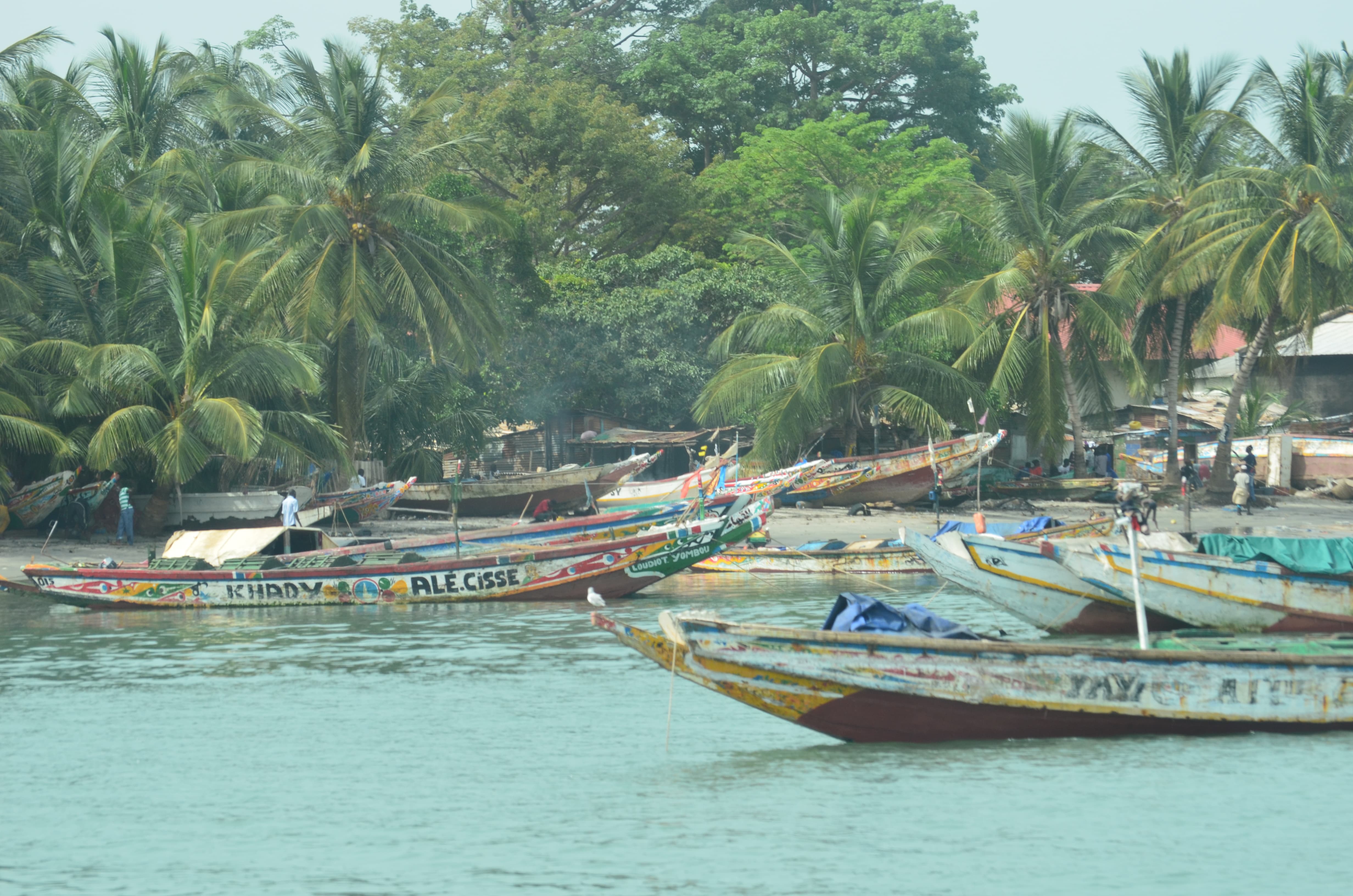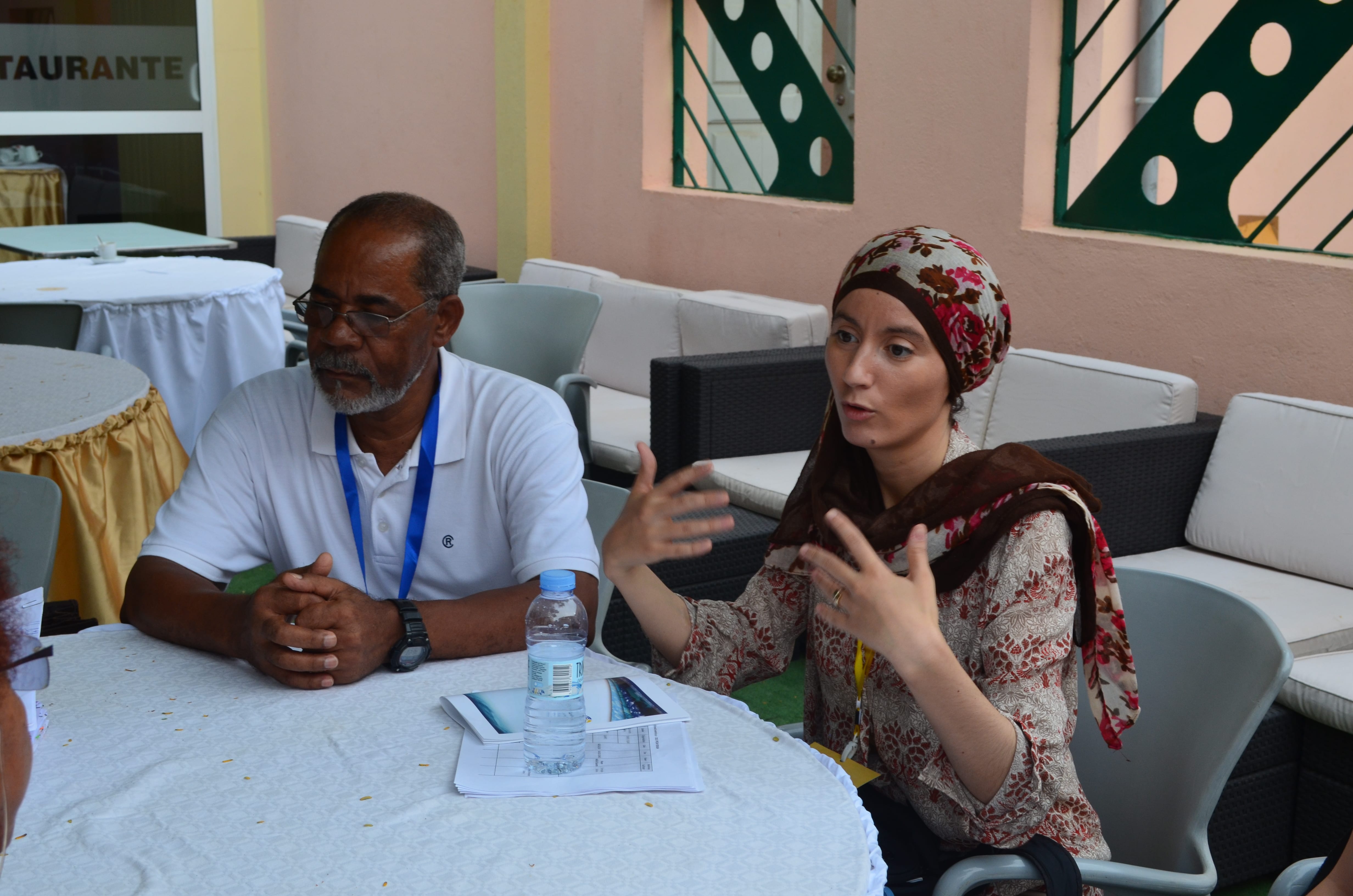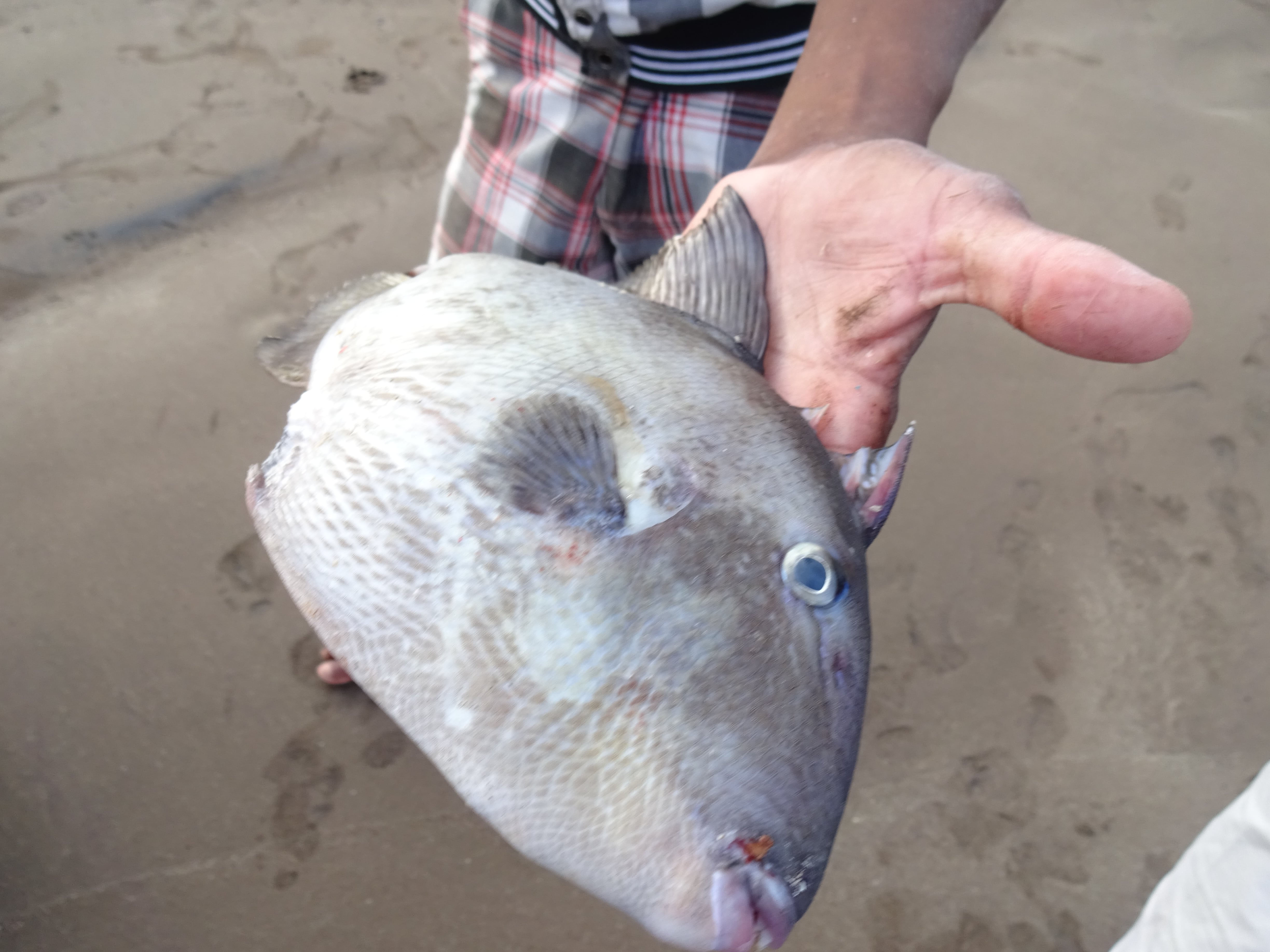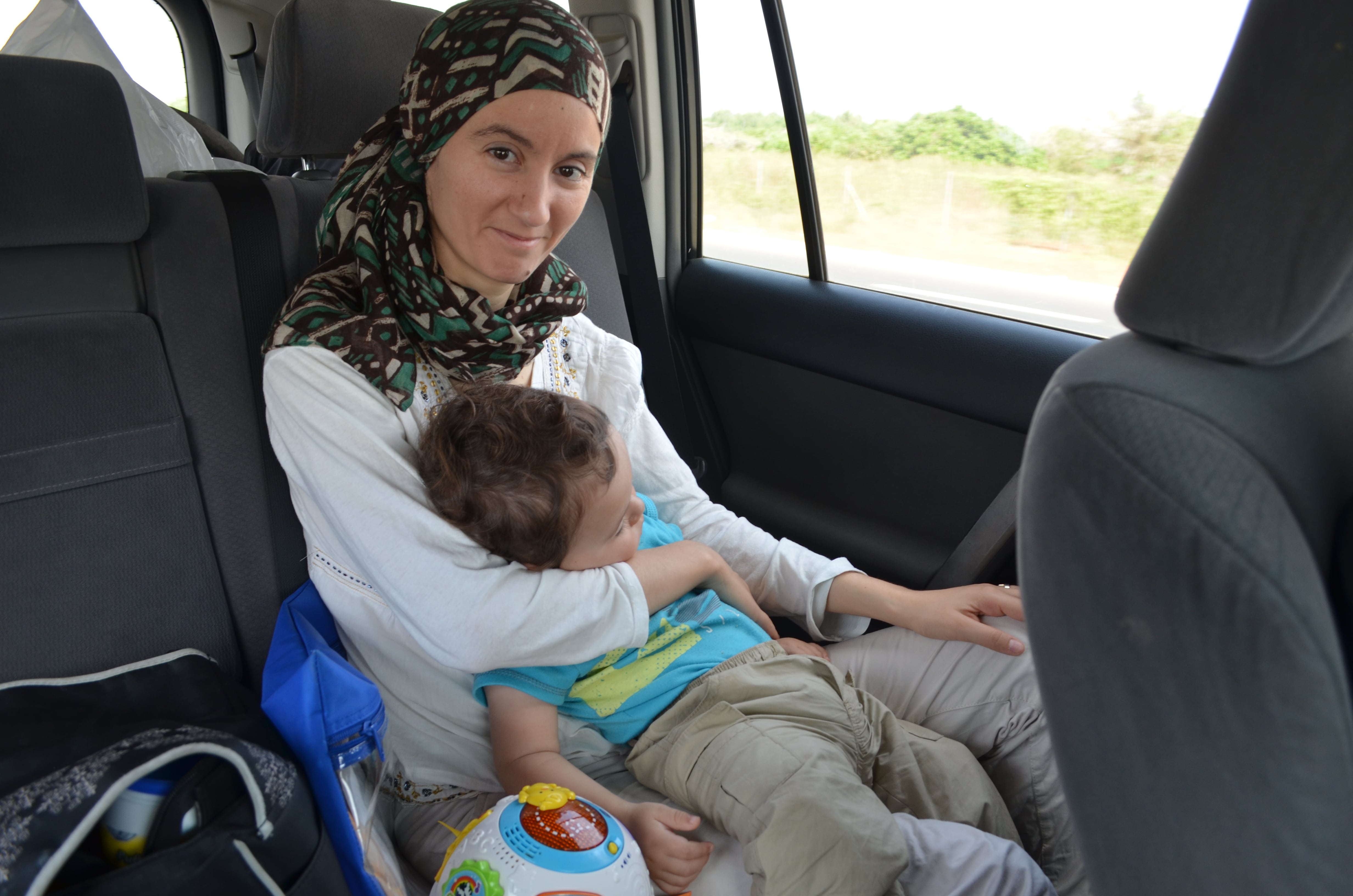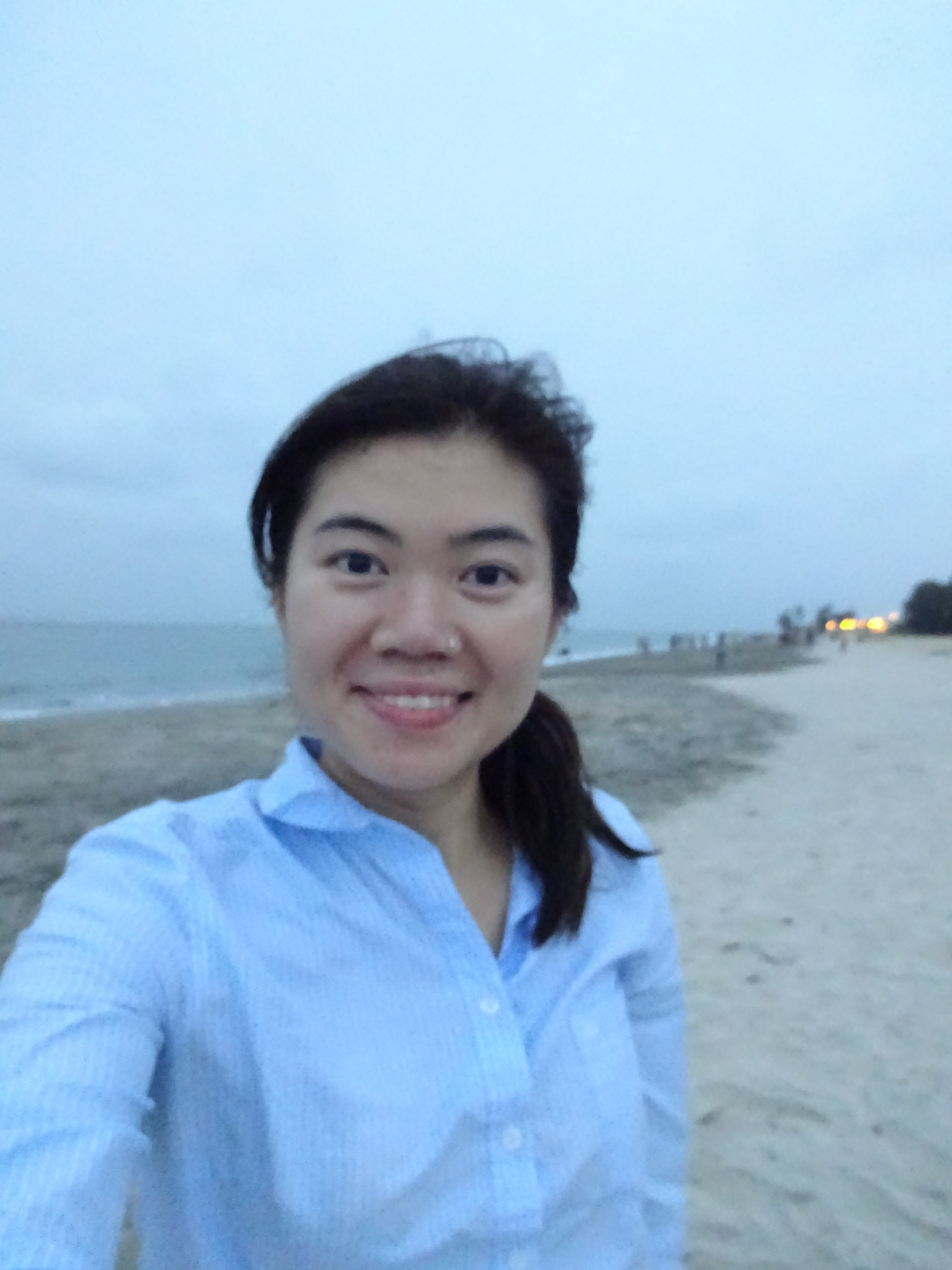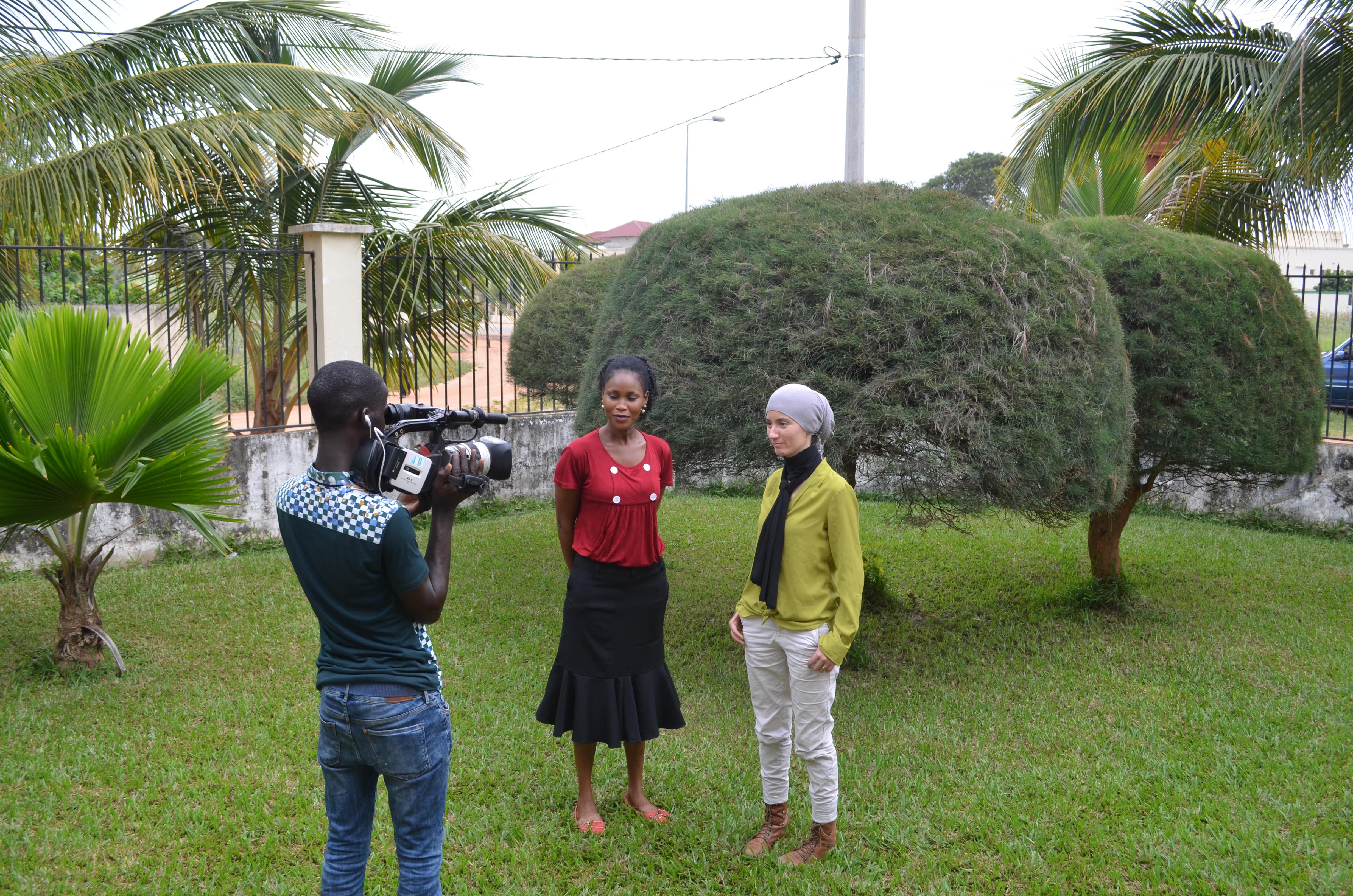- Colourful artisanal fishing boats along the shores of the Gambia River, quite a sight during our ferry crossing from Banjul to Barra.
- Dyhia passionately explaining the work of the Sea Around Us and our involvement in West Africa, alongside another delegate at the PRCM.
- Dyhia and baby, Ilyas, looking content on the first hour (out of 12 hours) on our drive from Dakar to Banjul.
- Celebratory selfie on the last day of the trip, at the mouth of the Gambia River.
- Dyhia being interviewed during our catch reconstruction workshop by the National Gambia Radio & Television Services
“Fish do not need passports or visas. They don’t stay within a specific EEZ. Climate change is affecting our fisheries and what we set out to do in one country has little effect if we do not work together as a region.”
– Salifu Ceesay, PRCM forum, Praia (Cabo-Verde) 2015
Earlier this month I embarked on an exciting adventure to West Africa, to participate in a conversation on climate change and West African fisheries, together with Dr. Dyhia Belhabib, the Sea Around Us West Africa Lead, and Dr. Vicky Lam, a Sea Around Us-Nereus Post-Doctoral Research Fellow.
Our whirlwind journey spanned 16 days and 4 countries, including a Sea Around Us side-event on climate change impacts and adaptation at the PRCM 2015 (Regional Marine and Coastal Conservation Programme for West Africa), and a catch reconstruction-focused workshop in The Gambia.
Armed with countless bottles of mosquito repellant, a suitcase filled with Sea Around Us brochures and a promising itinerary, we touched down at our first destination in Africa , Praia in Cape Verde (this was mine and Vicky’s first time in the African hemisphere). At the week-long PRCM 2015 conference we had the pleasure of meeting many interesting people and hosting a side-event, chaired by Dyhia, alongside some of our West African collaborators, Salifu Ceesay (The Gambia) and Elimane Abou Kane (Mauritania).
The Sea Around Us side event, titled “Climate change impacts in West Africa and possible routes of adaptation,” was very well attended and the room was full. In attendance were representatives from the Mauritanian Institute for Fisheries Research (IMROP), The Gambian National Fisheries Department (including the director and the ministry secretary), IUCN West Africa, several NGO’s, the United Nations Environmental Program, fisher’s organizations (e.g., CAOPA), and fishers themselves, as well as our partner the MAVA Foundation, among many others. After the presentation, all participants passionately shared their experiences at a round-table discussion. With representation from most West African countries, spanning Mauritania to Sierra Leone, topics for discussion included the impacts of foreign fishing vessels, climate change observations, and the decline and migration of fish stocks. Several delegates highlighted the need to think of fisheries management in a more regional manner.
The remainder of the week was spent engaging in discussions with the IUCN (International Union for the Conservation of Nature), SRFC (Sub-Regional Fisheries Commission), MESA (Monitoring for Environment and Security in Africa) and other groups. Outside the conference, we enjoyed delicious seafood, and touring around Santiago island on an excursion organized by the PRCM. The 8th PRCM concluded with an urgent call for a more unified and collective approach in fisheries management strategies.
Following the PRCM conference, Vicky began her journey back to Vancouver, en route to China for another conference, while Dyhia took a short trip to Gland, Switzerland, for a MAVA Foundation strategic meeting, before re-joining me in Dakar, Senegal, for the next major Sea Around Us engagement event of our trip. Together with Dyhia’s husband Allan and her baby Ilyas, we drove from Dakar to Banjul (The Gambia). What was originally supposed to be a short three hour drive, turned into an eventful twelve hour journey, featuring an interesting episode at the Senegalese-Gambian border crossing, multiple police checkpoints and one extremely chaotic ferry crossing in Barra. Exhausted but relieved to arrive in Banjul, we were eager to immerse ourselves in the joint workshop on catch reconstructions between the Department of Fisheries of the Gambia and the Sea Around Us.
The workshop was attended by over 40 participants from diverse backgrounds, including various governmental departments, research units, educational institutions, industry members, media staff and the country representative of the FAO in The Gambia. The primary objective was to discuss the Sea Around Us Gambian catch reconstruction and approaches to further improve the overall fisheries catch reporting in the country. We conversed on the importance of fisheries observers and the protection and effectiveness of these observers, as well as the effect that desensitization may have on accurate reporting and data collection at sea.
James Gomez, the Director of Research from the Ministry of Education in The Gambia, highlighted the importance of interdepartmental collaboration. He urged for better policy to facilitate information sharing, stating: “Data that is useful for the nation should not be hard to access.” I thought the workshop was a success, with recommendations ranging from updating data collection forms to better reflect the fish species currently caught, to building capacity and provide data collection training to staff, to validating fisheries catch data with all stakeholders to reduce discrepancies.
Although our West Africa trip had quickly come to an end, and we find ourselves back within the Global Fisheries Cluster (www.global-FC.ubc.ca) at the University of British Columbia in Vancouver, the engagement aspect of the project continues and our partnerships in West Africa are today more integrated.
A collaborative research initiative between the Sea Around Us and the various Departments of Fisheries from the seven West African countries is expected to launch in early 2016. Each country will nominate candidates to visit the Sea Around Us for 10-15 days on a scholarship. Candidates will attend training seminars, work on catch reconstructions and other related issues identified, and work towards a peer reviewed publication. The partnership, funded by the MAVA Foundation, will provide valuable training to West African fisheries researchers, and facilitate an interdisciplinary and cross-cultural approach to examining fisheries issues, furthering collaboration between researchers at the Sea Around Us and in West Africa.


